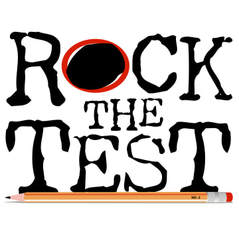SAT & ACT PREP
Test Taking Strategies
|
Tips for taking the SAT:
1. Use process of elimination (POE) 2. Answer EVERY question 3. Write in the test booklet 4. Slow down (a little bit) to increase accuracy 5. Choose which questions to answer first 6. Use the order of difficulty to your advantage on the math section 7. Don't give your opinion on the SAT Essay 8. Transfer your questions at the end of each section 9. Cross-check your ovals 10. Don't second guess yourself Adapted from https://www.thoughtco.com/top-sat-tips-3212054 |
Tips for taking the ACT: Essay: To make that overall impression a good one, be sure to organize your ideas into a standard essay format. A well-organized essay consists of four to five paragraphs, including an introduction, supporting paragraphs, and a conclusion. Aim to have at least two body paragraphs to develop and support your ideas. English: When searching for sentence errors, start by reading the sentence or paragraph carefully, listening in your head; usually the word or phrase that contains an error will sound wrong. Math:As soon as you find the right answer, mark it and move on -- there are no ''degrees of rightness'' to be considered. Questions focus on mathematical reasoning, not your ability to perform calculations. For the multiple choice section, try substituting numbers for variables or try plugging in numbers from the answer choices. Start with the middle number. That way, if it doesn't work, you can strategically choose one that's higher or lower. |
Reading: Use the three-stage method (previewing, reading, and reviewing) to get the most out of each reading passage. Focus on the big ideas in each passage, not the small details. Look for connections among ideas in each passage. To help you find answers quickly, take notes as you read, marking the main ideas or connections with your pencil. Science: Use the same three-stage method (previewing, reading, reviewing) for each science reasoning passage. In data representation passages, focus on what is being measured, relationships among variables, and trends in data. Don't be confused by irrelevant information or technical terminology -- most science reasoning passages have them, and they can almost always be ignored. Adapted from https://www.petersons.com/college-search/act-scores-tips-strategies.aspx#/sweeps-modal |







